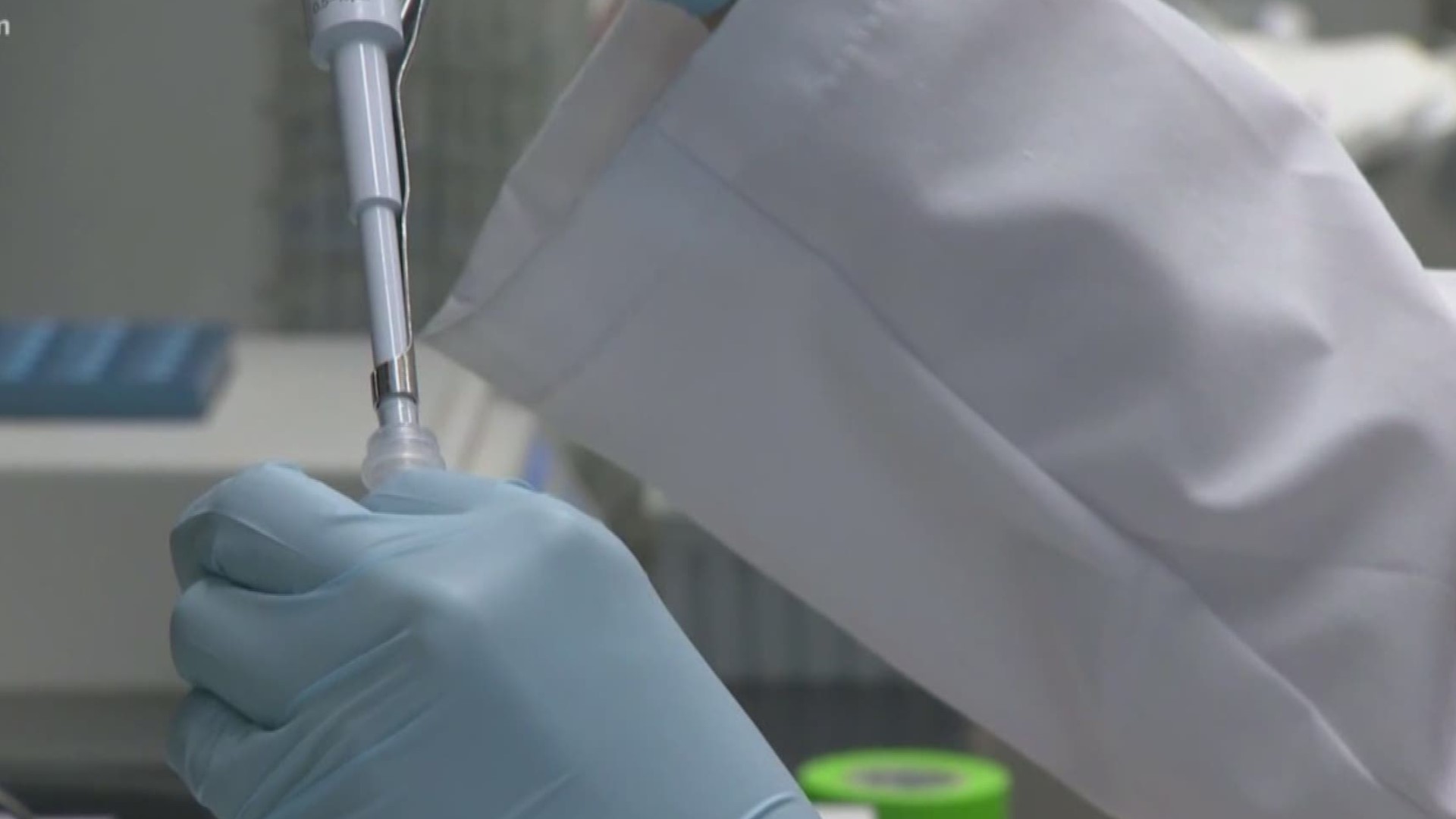TAMPA, Fla. — Two cases of long-term HIV remission are giving hope to find a cure.
Both patients had cancer and HIV. They had stem cell transplants.
Timothy Ray Brown is still free of HIV 12 years after he was treated in Berlin. Scientists just shared in the journal Nature, a second man who had Hodgkin lymphoma received a stem cell transplant in 2016. Those transplants give patients a whole new immune system.
HIV positive patients are at a higher risk of developing lymphoma.
There are about 25 million bone marrow donors. Only one percent of the population around the globe has a mutation that is immune to HIV. They're Caucasian and of Scandinavian descent. Researchers say they could have developed it to fight off the bubonic plague and smallpox two to three thousand years ago.
Moffitt Cancer Center Oncologist Doctor Aleksandr Lazaryan specializes in lymphoma treatment. He says this transplant is not something that would be used for those who don't have cancer.
“With the stem cell transplant there are some serious life-threatening complications that can happen just as a part of the transplant process, so in terms of the risk and benefit of today, it wouldn’t be indicative for just HIV positive patients without blood cancers to undergo this type of rigorous therapy for blood and marrow transplant because the risks might be higher compared to daily pills,” Dr. Lazaryan said.
“For the patients who have concurrent blood malignancy or any other indication that they might be treated and be good candidate for stem cell transplant, this type of strategy can certainly kill two birds with one shot," he added. "Not only it can potentially cure they’re underlying blood cancer, but it could also as we could have seen from these last two cases reported lead to a potential cure of their HIV infection.”
The bone marrow donors are asked to be tested to see if they have the rare mutation prior to the transplants. While this type of treatment isn’t going to be replicated on a large scale, these remission cases could have relevance for gene editing in the future.
Researchers are watching a third patient that could be in long-term remission.
What other people are reading right now:
►Make it easy to keep up-to-date with more stories like this. Download the 10News app now.
Have a news tip? Email desk@wtsp.com, or visit our Facebook page or Twitter feed.

